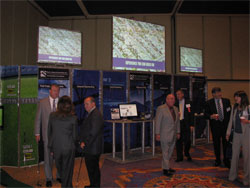California Builders Right To Repair Current Law Summary:
Current Law Summary: SB800 (codified as Civil Code §§895, et seq) is the most far-reaching, complex law regulating construction defect litigation, right to repair, warranty obligations and maintenance requirements transference in the country. In essence, to afford protection against frivolous lawsuits, builders shall do all the following:A homeowner is obligated to follow all reasonable maintenance obligations and schedules communicated in writing to the homeowner by the builder and product manufacturers, as well as commonly accepted maintenance practices. A failure by a homeowner to follow these obligations, schedules, and practices may subject the homeowner to the affirmative defenses.A builder, under the principles of comparative fault pertaining to affirmative defenses, may be excused, in whole or in part, from any obligation, damage, loss, or liability if the builder can demonstrate any of the following affirmative defenses in response to a claimed violation:
Construction Expert Witness Contractors Licensing
Guidelines Anaheim California
Commercial and Residential Contractors License Required.
Construction Expert Witness Contractors Building Industry
Association Directory
Local # 0532
77570 Springfield Ln Ste E
Palm Desert, CA 92211
http://www.desertchapter.com
Building Industry Association Southern California - Riverside County Chapter
Local # 0532
3891 11th St Ste 312
Riverside, CA 92501
Building Industry Association Southern California
Local # 0532
17744 Sky Park Circle Suite 170
Irvine, CA 92614
http://www.biasc.org
Building Industry Association Southern California - Orange County Chapter
Local # 0532
17744 Skypark Cir Ste 170
Irvine, CA 92614
http://www.biaoc.com
Building Industry Association Southern California - Baldy View Chapter
Local # 0532
8711 Monroe Ct Ste B
Rancho Cucamonga, CA 91730
http://www.biabuild.com
Building Industry Association Southern California - LA/Ventura Chapter
Local # 0532
28460 Ave Stanford Ste 240
Santa Clarita, CA 91355
Building Industry Association Southern California - Building Industry Association of S Ca Antelope Valley
Local # 0532
44404 16th St W Suite 107
Lancaster, CA 93535
Construction Expert Witness News and Information
For Anaheim California
Official Tried to Influence Judge against Shortchanged Subcontractor
Seller Cannot Compel Arbitration for Its Role in Construction Defect Case<
In Re Golba: The Knaubs v. Golba and Rollison, Debtors
Architect Not Responsible for Injuries to Guests
Summary Judgment in Construction Defect Case Cannot Be Overturned While Facts Are Still in Contention in Related Cases
Mississippi exclusions j(5) and j(6) “that particular part”
Texas Law Bars Coverage under Homeowner’s Policy for Mold Damage
Plaintiff Not Entitled to Further Damages over Defective Decking
Anti-Concurrent Causation Clause Bars Coverage for Landslide and Water Leak
Association May Not Make Claim Against Builder in Vermont Construction Defect Case
Homeowner Has No Grounds to Avoid Mechanics Lien
Colorado Court of Appeals holds that insurance companies owe duty of prompt and effective communication to claimants and repair subcontractors
Architect Not Liable for Balcony’s Collapse
Pictorial Construction Terminology Dictionary — A Quick and Helpful Reference
A Downside of Associational Standing - HOA's Claims Against Subcontractors Barred by Statute of Limitations
Alaska Supreme Court Dismisses Claims of Uncooperative Pro Se Litigant in Defect Case
Good Signs for Housing Market in 2013
Insurer Not Liable for Construction Defect Revealed by Woodpecker
Judge Rejects Extrapolation, Harmon Tower to Remain Standing
Construction Defect Litigation at San Diego’s Alicante Condominiums?
Condo Owners Worried Despite Settlement
Underpowered AC Not a Construction Defect
Defective Grout May Cause Trouble for Bridges
Mandatory Arbitration Provision Upheld in Construction Defect Case
Former Zurich Executive to Head Willis North America Construction Insurance Group
Construction Law Alert: A Specialty License May Not Be Required If Work Covered By Another License
Colorado “property damage” caused by an “occurrence” and exclusions j(5) and j(6) “that particular part”
Plaintiffs In Construction Defect Cases to Recover For Emotional Damages?
Australian Developer Denies Building Problems Due to Construction Defects
Tacoma Construction Site Uncovers Gravestones
Washington Court Limits Lien Rights of Construction Managers
Washington Court of Appeals Upholds Standard of Repose in Fruit Warehouse Case
El Paso Increases Surety Bond Requirement on Contractors
Mobile Home Owners Not a Class in Drainage Lawsuit
Minnesota Starts Wide-Ranging Registration of Contractors
Utah Construction Defect Claims Dependant on Contracts
Does the New Jersey Right-To-Repair Law Omit Too Many Construction Defects?
Policing Those Subcontractors: It Might Take Extra Effort To Be An Additional Insured
General Contractor/Developer May Not Rely on the Homeowner Protection Act to Avoid a Waiver of Consequential Damages in an AIA Contract
Preparing for Trial on a Cause of Action for Violation of Civil Code section 895, et seq.
Building Inspector Jailed for Taking Bribes
Tampa Condo Owners Allege Defects
Consumer Protection Act Whacks Seattle Roofing Contractor
Drug Company Provides Cure for Development Woes
Ghost Employees Steal Jobs from Legit Construction Firms
Safe Harbors- not just for Sailors anymore (or, why advance planning can prevent claims of defective plans & specs) (law note)
Defective Drains Covered Despite Water Intrusion Exclusion
Homeowners Not Compelled to Arbitration in Construction Defect Lawsuit
Record-Setting Construction in Fargo
Courts Are Conflicted As To Whether "Good Faith" Settlement Determinations Can Be Reviewed Via Writ Petition Or Appeal
Construction Job Opening Rise in October
New Construction Laws, New Forms in California
The Montrose Language Interpreted: How Many Policies Are Implicated By A Construction Defect That Later Causes a Flood?
No Coverage for Counterclaim Alleging Construction Defects Pled as Breach of Contract
Florida trigger
Faulty Workmanship Exclusion Does Not Bar Coverage
No Coverage Under Ensuing Loss Provision
Hawaii State Senate Requires CGL Carriers to Submit Premium Information To State Legislature
Gilroy Homeowners Sue over Leaky Homes
A Lien Might Just Save Your Small Construction Business
Save A Legal Fee? Sometimes You Better Talk With Your Construction Attorney
Another Las Vegas Tower at the Center of Construction Defect Claims
Insurer Beware: Failure to Defend Ends with Hefty Verdict
Lien Law Unlikely To Change — Yet
Construction Company Head Pleads Guilty to Insurance and Tax Fraud
Seven Tips to Manage Construction Defect Risk
Nevada Assembly Bill Proposes Changes to Construction Defect Litigation
BHA Expands Construction Experts Group
California Posts Nation’s Largest Gain in Construction Jobs
Late Filing Contractor Barred from Involving Subcontractors in Construction Defect Claim
Colorado Statutes of Limitations and Repose, A First Step in Construction Defect Litigation
Conspirators Bilked Homeowners in Nevada Construction Defect Claims
Certificate of Merit to Sue Architects or Engineers Bill Proposed
Background Owner of Property Cannot Be Compelled to Arbitrate Construction Defects
Court Consolidates Cases and Fees in Soil Construction Defect Case
Allowing The Use Of a General Verdict Form in a Construction Defect Case Could Subject Your Client to Prejudgment Interest
California Supreme Court to Examine Arbitration Provisions in Several Upcoming Cases
Loss Caused by Seepage of Water Not Covered
Eleventh Circuit Asks Georgia Supreme Court if Construction Defects Are Caused by an "Occurrence"
Construction Defect Not a RICO Case, Says Court
Appeals Court Reverses Summary Judgment over Defective Archway Construction
Liability policy covers negligent construction: GA high court
Court Clarifies Sequence in California’s SB800
Construction Defect Destroys Home, Forty Years Later
Denver Court Rules that Condo Owners Must Follow Arbitration Agreement
The Colorado Court of Appeals Rules that a Statutory Notice of Claim Triggers an Insurer’s Duty to Defend.
Construction Law: Unexpected, Fascinating, Bizarre
Court Grants Summary Judgment to Insurer in HVAC Defect Case
Insurer Settles on Construction Defect Claim
Gut Feeling Does Not Disqualify Expert Opinion





























































